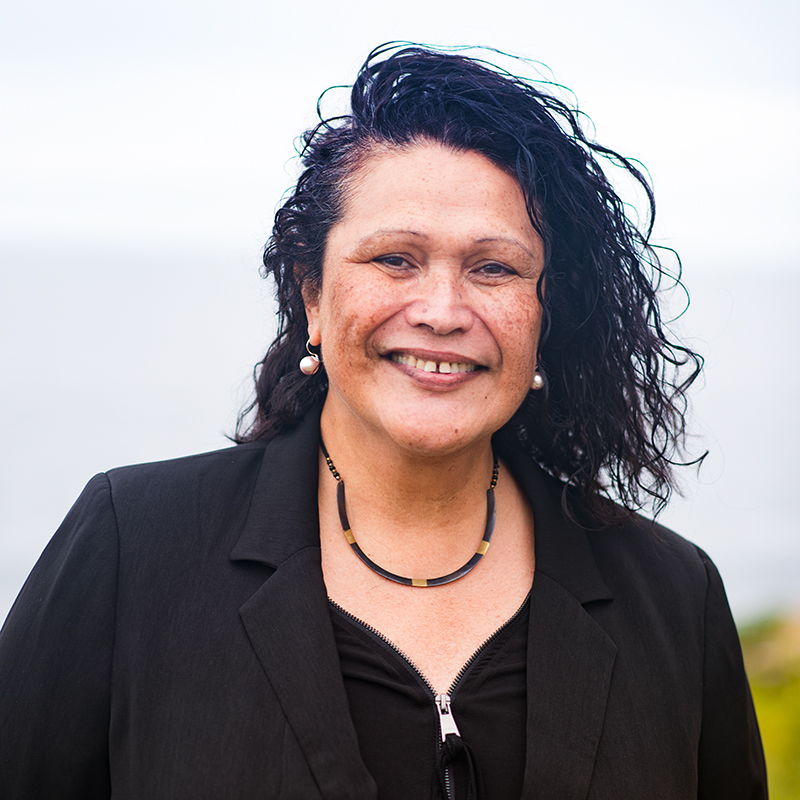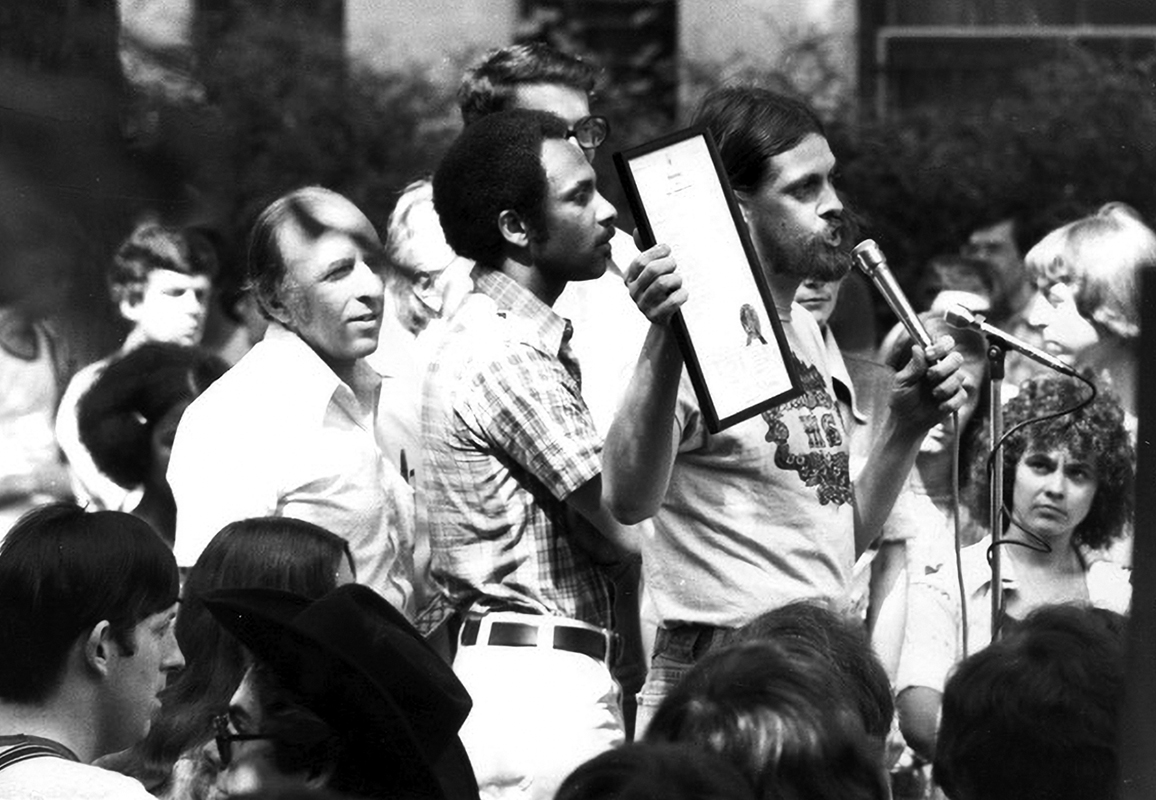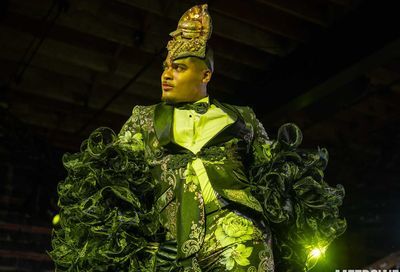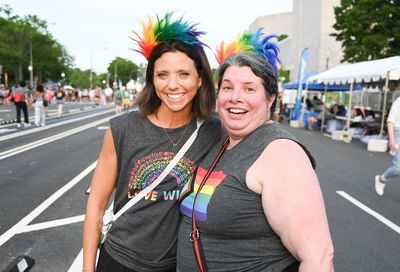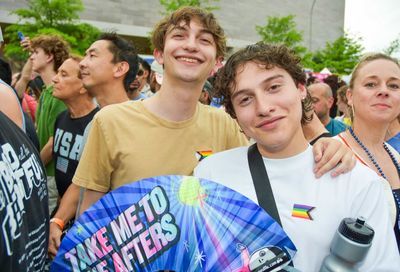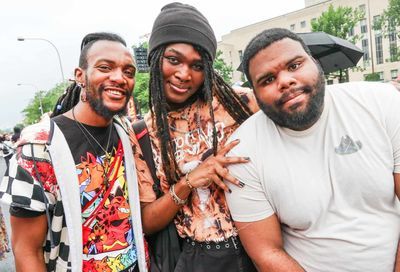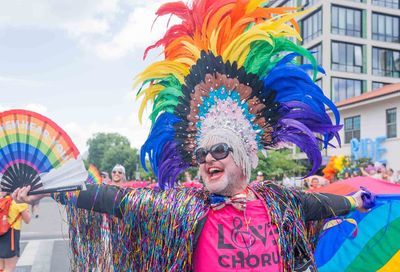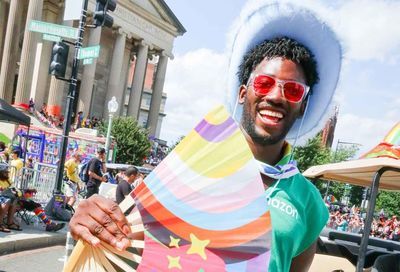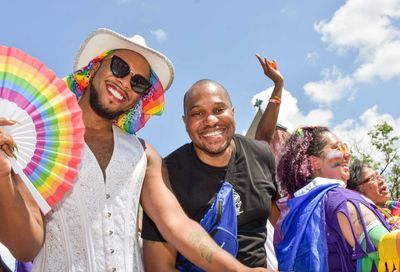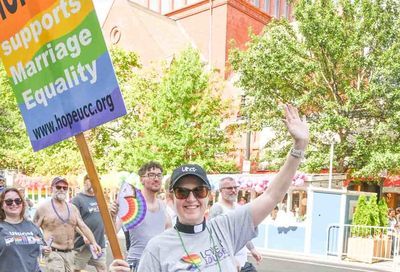Marriage Nears the Finish Line
Although marriage equality in D.C. is on track, a number of hurdles must still be cleared
The passage of the marriage equality bill by D.C. City Council on December 15 and signing of the bill by Mayor Adrian Fenty later that week may have been, as longtime District LGBT equality advocate Bob Summersgill said, ”the easy step” in reaching D.C. marriage equality.
In the past week, the Religious Freedom and Civil Marriage Equality Amendment Act of 2009 was transmitted to Congress for review, a judge heard arguments on whether same-sex marriage can be subject to an initiative in the District and a referendum effort was filed by equality opponents. After all that, marriage equality is still moving forward – but there are several hurdles remaining in place before the D.C. Clerk of Courts signs the first marriage certificate.
The congressional hurdle has been one of the most talked about, although it appears unlikely that congressional interference – even if it is to come – would come during the 30-day review period. Any civil law passed by the D.C. City Council and signed by the mayor is transmitted to Congress, which then has 30 legislative days to vote to reject the bill.
Even if both chambers of Congress pass a joint resolution disapproving the law, it would still need to be signed by President Barack Obama in order to invalidate the bill. If that does not happen, then the marriage equality bill would become law at the conclusion of the 30 days, which is expected to come by the first week of March depending on the congressional calendar.
Because of the difficulty of that process, Congress has more commonly used its control over the District’s budget to prohibit certain District-approved measures – like the domestic partnership registry – from being implemented. This Congress, however, put an end to many of the long-standing ”riders,” as they’re called, in this past year’s budget, leading D.C. equality advocates to be hopeful that the same hands-off approach will be taken with the marriage equality bill.
Likewise, the referendum effort filed last week by Stand4Marriage D.C. Coalition faces an uphill battle. A referendum effort would halt the effective date of the marriage equality bill until the referendum vote would be held, but it is a very fast-moving and difficult process to accomplish. The petition must be submitted and approved by the D.C. Board of Elections and the signatures required to be gathered must be collected prior to the end of the 30-day congressional review period.
For these reasons, the most likely hope of marriage equality opponents has been hung on the initiative effort begun by Bishop Harry Jackson on September 1, 2009. The initiative proposed by Stand4Marriage would ask voters to define marriage as being only between one man and one woman in the District.
The D.C. Board of Elections, however, ruled in the fall that the matter is not an appropriate topic for an initiative because it would have the result of authorizing discrimination prohibited by the D.C. Human Rights Act. Jackson’s coalition, arguing that only budget matters are not subject to the initiative process, sued the Board of Elections in D.C. Superior Court to reverse the ruling. The District joined the Board of Elections to defend its ruling, and briefs were submitted over the past month.
Last Wednesday, D.C. Superior Court Judge Judith Macaluso heard arguments from the District, the Board of Elections and the Alliance Defense Fund attorneys representing the Stand4Marriage D.C. Coalition about the question.
The Stand4Marriage Coalition’s argument before the court is that the Charter Amendments Act (CAA) of the District does not limit the citizens’ right of initiative, other than in an explicit exclusion for laws appropriating funds. The Initiative, Referendum, and Recall Charter Amendments Act (IPA), which implemented the CAA, however, prohibits initiatives that would violate the D.C. Human Rights Act (HRA).
Under last year’s Jury and Marriage Amendment Act, same-sex marriages performed elsewhere are recognized in the District and, thus, failure to recognize those marriages is a violation of the HRA. The District and Board of Elections argue that Stand4Marriage’s proposed initiative is prohibited because it would violate this law.
Stand4Marriage argues that, to the extent they conflict, the ”plain language” of the CAA – without the HRA limitation – should control and, thus, that the initiative should be allowed to go forward.
The City and Board of Elections, however, argue that Stand4Marriage cannot raise the issue in this trial because they did not raise it before the Board of Elections. In addition, they argue that past cases direct the court to give deference to City Council’s long-standing interpretation of the CAA, including the Human Rights Act restriction, and note that no one has previously challenged the restriction in more than 30 years.
In addition to the arguments, Judge Macaluso also granted ”friend of the court” status both to a group of conservative members of Congress and to the Campaign for All D.C. Families and a group of same-sex couples. This allowed them to present their arguments about the propriety of the proposed initiative to the court. The judge has given the parties until Wednesday to respond to any arguments raised in those filings and said she would issue her ruling ”as promptly as possible after that deadline has passed.”
Regardless of the judge’s ruling, it is expected that the losing party will appeal the decision to the D.C. Court of Appeals.
Chris Geidner is a lawyer who writes at Law Dork, voted the Best Law Blog in 2005, and has written for The Atlantic Online, Advocate.com and Salon. You also can follow him on Twitter.
Support Metro Weekly’s Journalism
These are challenging times for news organizations. And yet it’s crucial we stay active and provide vital resources and information to both our local readers and the world. So won’t you please take a moment and consider supporting Metro Weekly with a membership? For as little as $5 a month, you can help ensure Metro Weekly magazine and MetroWeekly.com remain free, viable resources as we provide the best, most diverse, culturally-resonant LGBTQ coverage in both the D.C. region and around the world. Memberships come with exclusive perks and discounts, your own personal digital delivery of each week’s magazine (and an archive), access to our Member's Lounge when it launches this fall, and exclusive members-only items like Metro Weekly Membership Mugs and Tote Bags! Check out all our membership levels here and please join us today!








